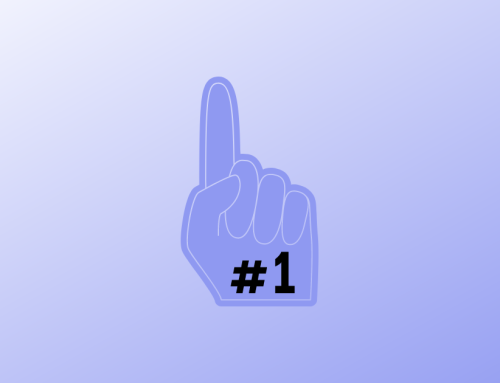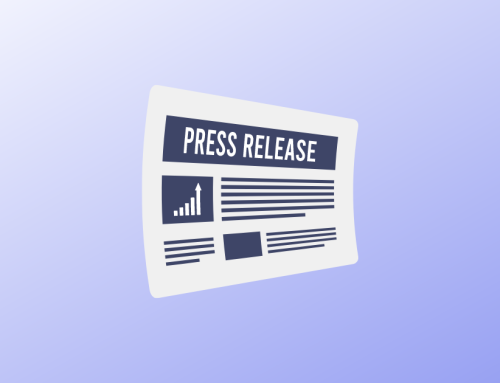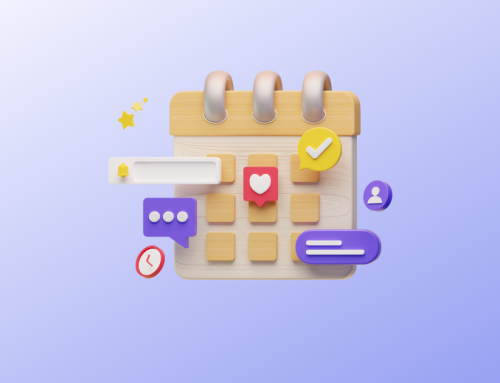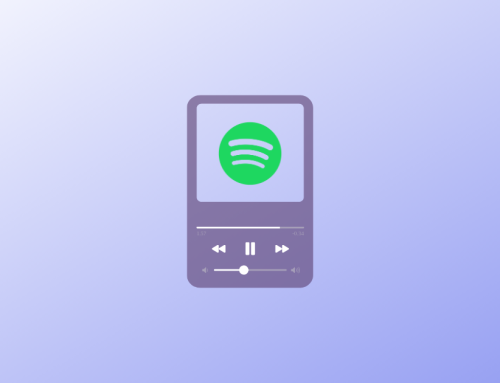So you want to start your own music distribution company? The first thing you need to know is that it’s not going to be easy. However, using existing music distribution infrastructure, like LabelGrid, can help you realize your dream.
This guide will explain what a music distribution company is and how the whole process works, from how to start out to accounting, marketing, and more.
What is Music Distribution?
At its most basic, music distribution is the process involved with making recorded music available to the listening public. This process can involve free or paid music, physical distribution to shops, and digital distribution to online stores.
Music distribution used to be a purely physical industry. However, the internet vastly changed the music industry. People used to consume music on vinyl, CDs, tape cassettes, and other formats. However, the arrival of the internet and the mp3 changed things dramatically.
During the days of physical mediums, record stores needed the rights to resell an artist’s music. These brick-and-mortar stores had a system of contracts that ensured payments for artists and record companies.
Some of these arrangements are still active. However, the bulk of the distribution is now done to various online music downloading platforms or music streaming services.
How Does Music Distribution Work?
Music distribution works reasonably simply. Distribution companies sign a deal with a record company or similar entity. These deals give them a right to sell the label’s music, with the distributor taking a cut of each sold unit.
In general, music distributors expect a label to offer them products that are finished and ready for the market, like vinyl and CDs. However, some distributors also provide marketing and distribution deals, aka M&D deals. With these agreements, the distributor pays for the product’s physical costs and recoups their investment through early sales.
For a large part of the 20th century, this was how things worked. Distribution companies were the intermediaries between record companies and retailers, like music-only stores and large retailers like Walmart.
Some of these deals were on consignment, i.e., the retailer would only pay for what they sold, while other deals involved retailers buying directly.
Of course, the rise of mp3 and online file-sharing changed distribution forever. High-speed internet and digital mp3 players removed the physical restriction on media. Sites like Napster allowed consumers to download as much music as they could illegally. The music industry was thrown into chaos.
Over the last few years, a new model emerged. Sites like Spotify and Pandora emerged to offer music fans a new way to consume music. These businesses were a welcome development for distributors and record labels because they allowed them to monetize their music again.
Why Do People Start a Music Distribution Company?
Distribution used to be an agreement between record labels and retailers. However, as music could be easily shared over the internet, it opened up a range of possibilities.
Freed from the requirement of physical copies, artists could get their music to listeners in new ways. In fact, digital distribution meant that artists could get their music to the listener without any intermediaries at all.
Of course, it’s not just music that has undergone this transformation. All sorts of content, like books, TV shows, video games, and films, can now be delivered “on-demand” via streaming or direct download.
How Does Digital Music Distribution Work?
As the music industry grappled with digitization and piracy, many people thought it would bring about a monumental change in how artists and listeners would interact.
In theory, distributing a song is as easy as uploading a track that people can download. However, while this might work for artists with a considerable existing fanbase, it’s not quite that simple.
Digital music distribution is still a hugely important part of the infrastructure that gets recorded products to the consumer. Here are three ways that mean music distribution is still essential.
Distributing to Digital Service Providers
Direct-artist platforms like Bandcamp and Soundcloud have helped many artists gain an audience. And before them, places like MySpace were also responsible for delivering music from artists to fans.
Platforms like these don’t require a digital distributor. Making music available is as simple as creating an account and uploading music. From there, fans just need to find it somehow.
However, for the handful of success stories involved, hundreds of thousands of artists failed to make an impact. Additionally, these channels make up a small number of people who listen to digital music.
There are lots of digital service providers that fans use to access music, like:
- Apple Music
- Amazon Music
- Deezer
- Google Play Music
- Pandora
- Primephonic
- Spotify
- Tidal
- Youtube Music
If artists want to reach an audience, their music needs to be across several of these platforms.
Most digital service providers don’t allow artists to upload their music directly. Spotify trialled the facility for a year but stopped in July 2019. There are a few reasons for this, from quality control to payout distribution and even how metadata is inputted.
Royalties
The following reason why a digital music company is still required is royalties. Royalties are the amount of money that the music right’s holder gets when a song is played or downloaded.
For streaming services, paying artists directly would present a lot of work. Keeping track of the plays and monies due is fairly simple with the right accountancy software, but managing the metadata and making continuous bank transfers would be a mammoth task.
For example, there are 8 million artists on Spotify alone and 60,000 tracks added daily to their platform. Spotify updates LabelGrid with reports (for our customers) around every six to ten days. LabelGrid then reports monthly, and DSP’s typically report all earnings and line items 30-45 days after every month. Then the DSPs send payments about 20-30 days or more after that, depending on the DSP. Imagine doing that without a distributor? That is an unbelievable amount of administration that most companies would struggle to pull off.
Additionally, music rights holders would also be getting a series of small payments from a wide variety of platforms.
So, this is another one of the roles that a music distribution company plays. They get the music from the artists and get it onto the platforms where people listen. From there, they aggregate payments and get the money back to the artists.
Of course, songwriting and composition credits are different matters. They get paid back through:
- Publishers
- Collective Management Organizations (CMOS)
- Performing Rights Organizations (PROs)
Marketing
Marketing music has never really been as simple as letting the cream rise to the top. There has always been a need for promotion to introduce listeners to artists, whether through the in-store placement of records near the checkout or other promotional places.
The same principle still applies today. While many DSPs use algorithms to match artists with users, there is still a curated element to what is featured. With a few DSPs having such a share of a market, being placed front and centre in the recommended pile can make or break an artist.
So, how does an artist get to convince the editorial team to promote their music? As we said earlier, there are millions of artists on just Spotify alone. Spotify releases about 60,000 songs per day. There’s just no way a DSP can deal with each artist directly.
A music distribution company is often the only way a DSP can really have these conversations. While the label or management company might be the parties driving the marketing push, in most cases, the distributor is the one contacting the DSP to make their case.
How To Start Your Own Music Distribution Company
Now that you understand:
- What a music distribution company is
- Why people start a music distribution company
- How digital music distribution works
It’s time to get into how to start your own music distribution company with a step-by-step guide.
Establish Why You Want To Start Your Own Music Distribution Company
The music industry, in general, is a tough, competitive market. It could take a long time before you are able to make a profit, if you can at all. So, the first step you need to take is to understand why you want to start your own music distribution company.
There are three main reasons why people start their own music distribution company.
- Because they want to distribute music they believe in
- Because they want to distribute their own music
- Because they already have a business and want to add a music distribution arm
- Because they think they can make money
While making money is certainly possible, it will take a lot of work. So, going in without passion might not be the best way to do things.
Whatever your reasons, the first thing you’ll need to do is establish some sort of platform for starting a business. This work could mean getting involved with your local music scene or even new, fresh artists who are posting tracks on social media.
Discovering new talent is an excellent starting point. Additionally, you can consider becoming a music promoter so that you can showcase gigs, help artists record, and become a channel that attracts talent.
Once you have some music to promote, you can move to the next step.
Study the Industry
If you want to distribute music, you’ll need to understand the music industry. Knowing your music is one thing, but understanding the economics, contracts, and various arrangements is vital if you want to succeed at starting a music distribution company.
So, get a grip on the trends that are happening and understand how things work on a business and relationship level.
Understand What You’ll Need to Do as a Distributor
If you want to start a music distribution company, you’ll need to define what your role will entail. Some of your duties could include:
- Negotiating contracts for distribution, licensing, publishing, and recording
- Producing recording masters
- Distributing recordings to DSPs and stores
- Managing payments to your clients and artists
- Running marketing campaigns
While not all music distribution companies will do all of this work, you’ll need to decide what type of company you’ll be. Also, it doesn’t hurt to be unique, so now is the time to plan your offering.
The most important thing is that you act responsibly, reliably, and professionally. Take care of your clients and artists, and you’ll be able to keep hold of them.
Do Market Research
Market research is an essential aspect of any business. Before you start to invest your own money in selling a product, you need to establish that a market need actually exists.
You can do this on a band-by-band basis or even for a particular genre. Additionally, you can use social media analytics to decide which artists are creating a buzz or resonating with audiences.
Overall, it’s up to you how you want to create your roster. You can go general or try to serve a genre. Most people start out with a genre or a specific sound. There are lots of reasons why this is a good idea, such as:
- Easier to brand
- You can establish a community
- It’s what you know
Anyway, most people will already know what type of music they want to distribute, so it’s just about confirming that there is an audience for the product so that the business is viable.
Look at Your Competitors
As part of the overall research you do into a distribution company, you should look at your competitors. Look at distributors like Horus, AWAL, DistroKid, TuneCore, and more and study their business model. Examine their websites, so you’ll know what you need.
The big thing that you’ll want to do is ensure your website is easy to navigate. Resist the urge to make it too complex; you want it to load fast and be functional.
Do you want people to be able to buy directly from you? If that’s the case, you’ll need to set up a shopping cart and look at payment processors like PayPal or others.
Additionally, music licensing is a huge source of income for the music industry. So, consider that as a service that you’d like to facilitate. More on that later.
Decide What Format You’ll Distribute
One of the major benefits of digital music distribution is reduced overheads. Without paying for the production or distribution of physical goods, costs are reduced a lot. However, some artists and listeners still want a physical product.
As such, you’ll need to decide what music distribution niche you plan on serving. Do you plan on offering to distribute CDs and vinyl? Or would you rather just distribute digitally. Or perhaps you’d like a mix of the two?
It’s important that you decide this because it will have a large bearing on the type of deals you’ll need to negotiate.
Identify Potential Business Threats
Any solid business plan should be aware of the potential threats that can ruin your dream. Knowing what works is great, but knowing what doesn’t work can also save your business.
So while you are doing market research and feasibility studies, take some time to consider what scenarios could occur that have put other distribution companies out of business.
Some reasons why music companies fail are mismanagement of funds, no market fit, competition, burnout, and even economic downturn. Look at past failures and try to learn your lesson from them.
Come Up With a Name
Names matter. So try to come up with something catchy and memorable that encompasses who your business will be or the type of music that you’d like to distribute.
There are three major things that you’ll need to consider.
- Make sure it’s a unique and easily searchable word or phrase.
- Make sure it sounds good and will look good written down as a logo
- Come up with 2-3 options that you are happy with
Get a Domain Name
If you want to start a music distribution company, you’ll need an online presence. This process will be important to both the artists and DSPs you want to work with. Additionally, it’s a great place to promote your services via SEO marketing.
So go to GoDaddy.com or name.com and search to see if the name you want has been taken already.
Another thing to remember is that you’ll really want to get the .com address of your company name. Try some of your backups or get creative if it’s taken already. However, if it’s just too far from your original intention, it might be worth getting back to the drawing board.
Register Your Business
Once you establish an online presence, you’ll need to register your business. While you can work under your own name as you get your distribution company off the ground, once you start working under your business name, you need to legally register it. Especially if you start generating money.
Registering your business name comes with some perks, including:
- personal liability protection
- various legal benefits
- tax benefits.
The registration process will differ from providence, county, and state, so the best thing is to check at your local municipal office for specific details.
One thing you’ll need to do is decide what type of business entity you’ll be. You’ll have a few choices:
Sole Proprietorship:
A sole proprietorship is the best choice if you’re just starting out and it’s a solo venture.
Partnership:
A partnership is the best entity if your music distribution company is a joint venture.
Limited Liability Corporation (LLC):
A limited liability corporation, or LLC, is best kept for bigger ventures.
Open a Bank Account
While this isn’t a step that every independent music distributor takes, it’ll save a considerable amount of hassle when it comes to accounting and taxes.
When you register your business with the government, they’ll give you a business number. This number will allow you to open a business account.
It’s a great idea to keep your business and personal finances separate. There are lots of good reasons for this, but the best one is that it will make your accounts and taxes far easier. Secondly, it makes running a profitable venture easier.
Consider Music Publishing
If you have a library of musical content, you can work out a deal with various companies to use the tracks in TV and movies. Get an industry directory or even look for the names of production companies on various shows.
Put together a package and email these businesses explaining you have music that is available to license. It won’t always work, but if a song gets used in TV or a movie, it can generate a lot of income for your customers. For further reading, look up Music Synchronisation or talk with a few Music Supervisors to determine how they place music into visual content. IMDB is a good source of Music Supervisors; just look up any film.
And now for the hard part….
Networking
Once you’re a business entity, you have a website, and you’ve got some music to distribute, you’ll need somewhere for it to go. And so begins the endless and often tricky task of networking with the stores and DSPs that you want to host your music.
Building these relationships is VITAL to the success of your music distribution company. One of the best ways to get the attention of these companies is by stoking audience demand.
So, reaching out to consumers is an important step. Some bands and labels will do their own promotion, but you should also try to find ways to connect your artists with an audience.
Social media is a great way to reach listeners. Additionally, you can link with your local music scene, radio stations, venues, or whoever you think will promote your music.
Marketing content is another way to get interest. So consider an email newsletter or reviews and promotions on your website or via industry publications or sites.
Really, this step is about making the music you have more popular, which will make DSPs more receptive to your distribution. Speak with your customers and see what they are doing already. Maybe add in an additional marketing package to your services and then hire publicists to grow your brand,
Decide on a Location
While you can operate out of your bedroom, some of the most successful music distribution companies are tied to a location. So, think about what music scene or genre you’d like to support. Hopefully, you already live in an area that is producing a lot of artists, but it’s not the end of the world if you don’t.
Digital music distribution companies can operate over the internet. They can do lots of marketing and unearthing talents over social media. However, not much beats seeing live up-and-coming artists and catching them early.
As for renting an office or not, it really depends on your budget. If you have staff and are storing physical copies of recordings, you’ll need somewhere to operate. If you’re a one-person digital operation, you can keep overheads down by working on a computer from your home.
Think About Financing
Every business needs some starting capital. Even if you want to run a small, lean operation, there will be initial costs and outgoings. So, figure out what you’ll need for your first six months to a year and try to locate a source of funding.
There are a couple of different ways you can approach this.
- Use personal savings or assets
- Look for investment partners
- Apply for a bank or small business loan
- Apply for government or arts grants
- Ask friends or family for a loan
Some of these options are more appealing than others. But no matter what, if you are asking someone to support your business venture, you’ll need to ensure you have a strong business plan. That plan will include the market research and feasibility studies you’ve done earlier, plus other things like comparable business models.
Understand the Technical Requirements
When you’re running any business, trust is a vital factor. In the music distribution industry, it’s even more important. If you are distributing a physical or digital product, you are the intermediary between DSPs and stores and the artist or label.
As such, it’s important that you keep track of all the relevant numbers and ensure that artists and labels are properly compensated for their work. Anything less, and your reputation will take damage that it won’t recover from.
To run a business properly, you need a way to keep up-to-date books and records. You should record any physical CDs you’ve received or money you’ve taken in from DSPs. Additionally, you need a secure and reliable payment method to collect money from sales or streams and clear contractual terms for what artists receive.
Depending on your setup, you’ll be dealing with labels or independent artists. Of course, the best arrangement possible will be to secure a distribution deal from a big label. However, they can be hard to get.
Set up a Good Service Process
One advantage of digital distribution over physical distribution is speed and directness. If artists want to get their work to the listening public, they need the help of industry professionals. While the odd success story of an independent band exists, it is accompanied by hundreds and thousands of bands that have failed.
Part of your job as a distributor will be to help artists fund, advertise, market, and distribute their work to online and offline retailers and other DSPs.
Online distribution helps artists get their work into the hands of listeners without a huge investment in physical goods. Of course, recordings will still need to be funded. Much of these overheads will be covered by labels, but if you want them to be successful, you’ll need to find a way to help.
Another thing to consider is that online music distribution companies often act as a type of digital rights manager. Other services that you can offer are marketing and promotion alongside your distribution deals. However, it’s best to focus on mastering one skill or service at a time.
Consider Legal and Business Aspects
Running a music distribution company is a labour of love and should be fun, but there are also several more serious aspects you’ll need to consider. While we’ve covered some of the legal elements already, like registering your business, there are a few more things to note.
Intellectual Property Protection
If the last few decades have taught the music business anything, it’s that piracy can hurt sales. In many ways, piracy paved the way for DSP giants like Spotify and Apple music. These services found a way to compete with illegal streaming and downloads and provide a legitimate way for artists to generate income.
However, protecting intellectual property is still important. Without legal protection, your artist’s music can be pirated freely and without consequence.
Unfortunately, there isn’t much you can do to stop your releases from getting pirated entirely. But you can make it more challenging to do, which will dissuade some people.
So, get all the music you distribute copyrighted. Of course, many labels you work with will do this already, but if you are working with independent artists, it may fall on you to protect your investment.
Another thing you’ll need to do is to have your logo protected. So get it trademarked.
Insurance
Insurance is another area that you’ll need to consider, depending on the size of your operation.
If you have staff and products, you’ll need to consider general, health, and liability insurance.
Other forms of insurance you’ll need to think about is business insurance, workers’ compensation insurance, and overhead expense disability insurance.
Speak to an insurance advisor to find policies that fit within your business or organization.
Summary
So, there you have it—LabelGrid’s exhaustive guide for how to start a music distribution company. What you may have noticed is that there is a whole lot of work that you’ll have to do to get your music distribution company off the ground, from registering websites to accountancy to digital rights, contracts, and more.
In fact, there is so much setup required that becoming a music distributor might seem off-putting or daunting to many people. However, one way to make the process far more straightforward and manageable is to use a service like LabelGrid’s White Label infrastructure to launch your distribution service.
You can use LabelGrid’s successful and user-friendly platform, but customize it with your logo and branding. That way, you have a stable and affordable platform, meaning you can focus on what you do best: finding great artists and music and marketing it to a relevant audience.
LabelGrids CMS and Royalty Reports Statements can help you achieve your business responsibilities reliably and professionally by centralizing your contacts and clients. Additionally, you can integrate your sales, accounting, and distribution data from your current platform with LabelGrid’s Accounting and Distribution.
LabelGrid’s advanced digital distribution tools allow you to quickly and flexibly get your music distributed on the top music sites like Amazon Music, Beatport, Apple Music, and a whole lot more. Additionally, direct music deals with DSPs and global monetization help you get the most revenue from all your licenses worldwide.
Of course, one of the most important parts of distribution is collecting royalties. LabelGrid’s solution helps you with your accounting by offering fully transparent data. You can collect invoices, process payments, and easily track and manage your royalties and payments. With automated invoicing and a facility to split invoices, LabelGrid’s Royalties Dashboard is here to make running a distribution company a lot easier.
Additionally, LabelGrid’s marketing and promotion tools can help you send press releases and increase radio plays.
Finally, LabelGrid’s demo management system allows you to receive, organize, reply and share all your incoming DEMOs. Cool features like automated or preset replies can help you deal with demos in bulk. Furthermore, you can save submissions to Dropbox or Google Drive or generate secret shareable links so that you can organize your demos in the best way possible.





